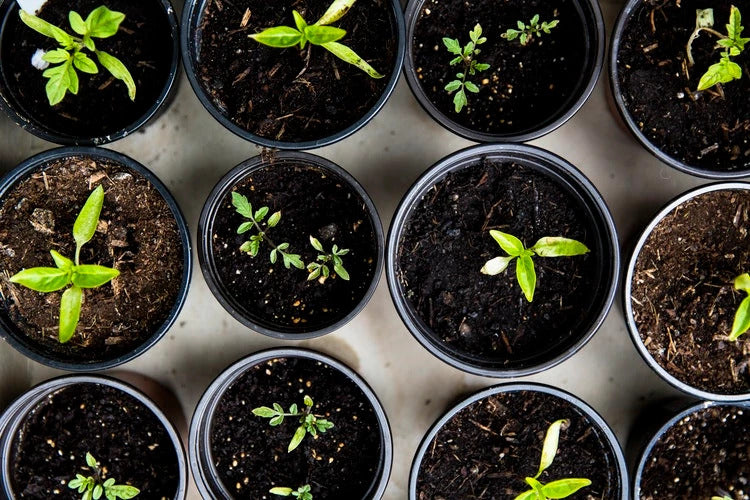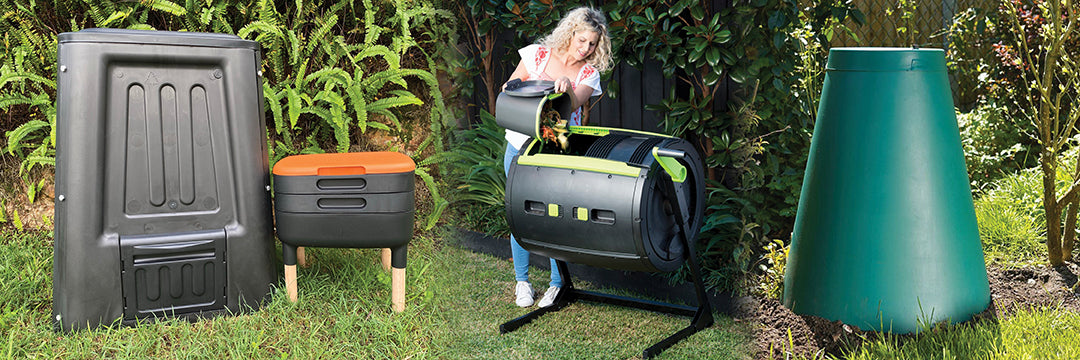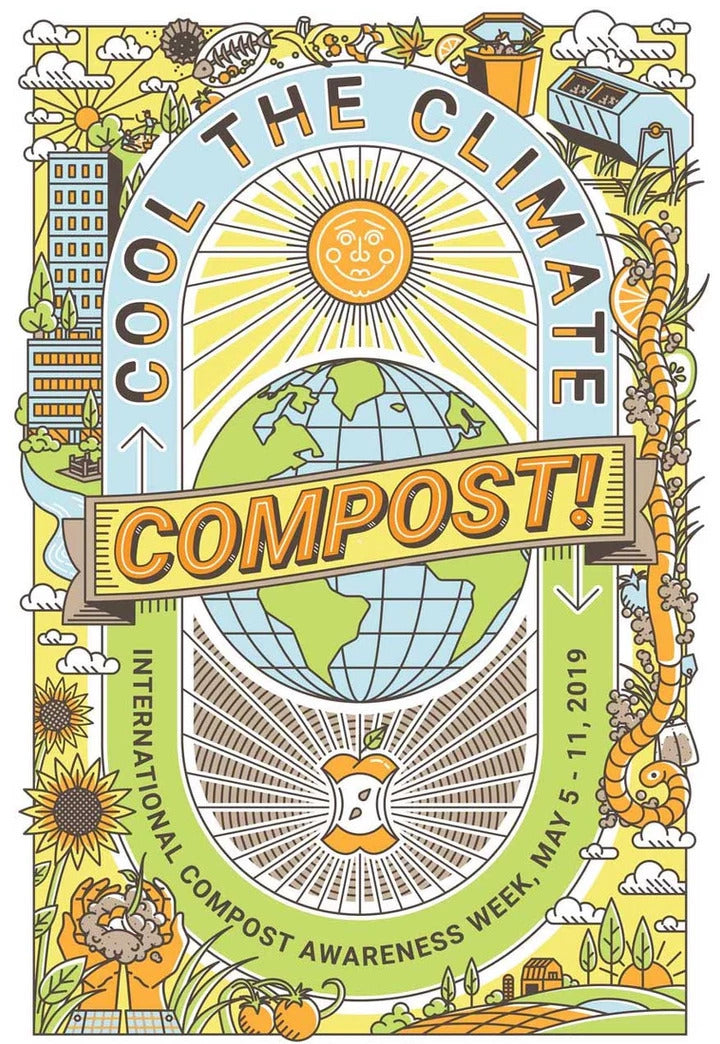If you hadn’t heard - we love compost! It’s a green miracle cure which is not only extreeeemely good for the environment but has countless social and economic benefits. In honour of International Compost Awareness Week, we’ve decided to dive into compost headfirst and explore why it is so important that everyone adopt it into their daily lives.

Composting diverts organic waste from heading to landfill.
Once in landfill, that organic waste undergoes a process called anaerobic fermentation. This process produces massive amounts of methane gas, a greenhouse gas that, once in the atmosphere, is approximately 20-30 times greater at retaining heat than carbon dioxide. Global emissions from waste produce 3% of man-made emissions, over half of which are from organic waste decomposition in landfill.
Organic waste in landfill also produces leachate, a liquid that seeps into waterways and causes eutrophication. Eutrophication causes oxygen depletion in a body of water and can spell the end for aquatic habitats.
Landfills can pose an even bigger threat to developing countries where they are poorly managed. Spontaneous combustion leads to the polluting of surrounding communities and attraction of dangerous disease vectors.
The solution: recycling organic waste through composting. This results in less organic waste in landfill and the added benefit of nutrient-rich organic fertiliser. That leads us to a broader discussion of why this by-product is so important.
Composting produces organic, nutrient rich fertiliser.
The process of composting produces compost, aka fertiliser. This fertiliser is extra special because it is nutrient rich and organic. The added nutrients in compost improves soil health and moisture retention, making for more efficient and effective farming. Compost can be used as an organic substitute to problematic artificial fertilisers. Artificial fertilisers contribute to greenhouse gas emissions through a highly energy-intensive manufacturing process and the emission of nitrous oxide. Artificial fertilisers also degrade soil and their run off can lead to the eutrophication of waterways. Compost, on the other hand, reverses greenhouse gas emissions by carbon sequestration - the process of sucking carbon dioxide from the atmosphere and storing it in a solid (or liquid) from.
Believe in the power of compost yet?
Compost is economically viable.
In terms of compost’s economic prospects, it is a fantastically viable solution. It is a low-cost, immediately available solution to mitigating climate change. On a micro scale, it is something everyone can invest in. On a macro level, commercial composting facilities can create long-term job opportunities for both high and low-skilled labourers. Economically, the prospects of commercial composting grow stronger every year as the consumer attitudes change and the industry gains greater support from government initiatives.
Compost is community building
The number of small-scale community composting initiatives has grown significantly in recent years. These hubs unite communities through a skills and knowledge exchange, teach an appreciation for the environment and our future, as well as get people outdoors and into nature which has been found to have a positive effect on mental and physical health which are growing issues in society, especially within emerging generations.
Seriously, what’s not to love about compost? The facts are there and we’ve weighed in - It’s time to stop overlooking compost. Help us change the way the world looks at and understands compost - follow our socials - Facebook, Instagram, Twitter - and share with your friends!




Leave a comment
This site is protected by hCaptcha and the hCaptcha Privacy Policy and Terms of Service apply.